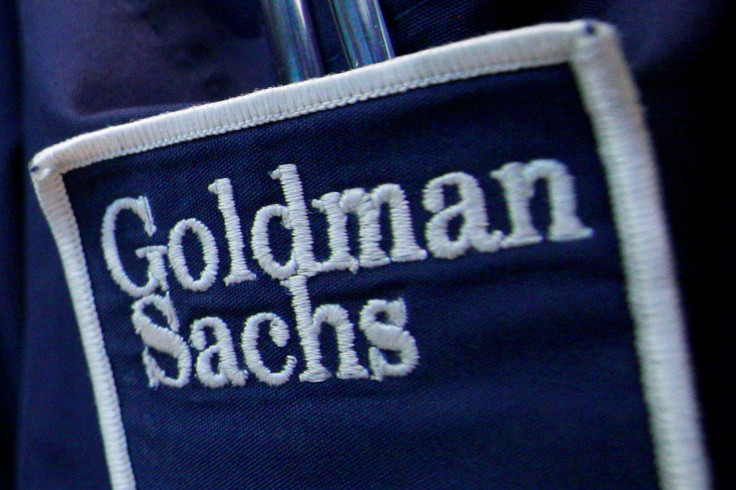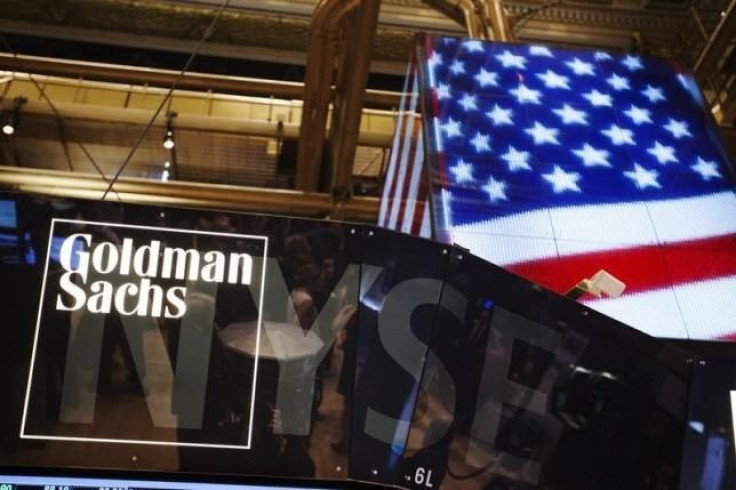It Could Take Goldman Sachs Years To Trade Bitcoin

Goldman Sachs Group Inc. started trending on Twitter on Monday when a spokesperson told the Wall Street Journal it is exploring cryptocurrency options for both trading services and the bank’s strategic investment division. There are already at least 70 hedge funds investing in cryptocurrencies like bitcoin, plus several new hedge funds in the pipeline. “In response to client interest in digital currencies, we are exploring how best to serve them in this space,” a Goldman spokeswoman told International Business Times via email.
Goldman Sachs wouldn’t be the first bank to work with bitcoin. In August, the Swiss private bank Falcon started allowing clients to store and trade bitcoin directly with their bank holdings. However, most cryptocurrency experts doubt this American finance giant will work with blockchain-based assets any time soon.
“We have talked to them a number of times over the past two years. There has been little progress in their knowledge,” an unnamed executive from a major bitcoin trading firm told Quartz. “No doubt they are studying. But I highly doubt it’s anything imminent.”

Lack of understanding is one major barrier for cryptocurrency adoption across the industry. But there’s still a whole spectrum of challenges related to regulation and compliance that American lawmakers have yet to sort out. Cryptocurrency trading usually involves unidentified parties, a serious no-no in the world of finance. Plus, lawmakers are moving too slow to keep up with breakneck cryptocurrency evolution. Many blockchain-based assets do more than just transfer money. Tokens can also represent community voting rights or unlock contract changes, such as the property rights connected to Propy's real estate token PRO.
According to attorney Alan Cohn, co-chair of Steptoe & Johnson LLP’s Blockchain and Digital Currency practice, the government currently classifies bitcoin as several different types of asset at once, including both property and currency. Some digital tokens can even be considered commodities and securities, depending what they are used for. It’s a nightmare for taxes, compliance and even insurance.

“There’s not specific enough interpretations or guidance out there, so that you would understand in the crypto token setting,” Cohn told IBT. “And we need that guidance. I think that we need that guidance so that companies and purchasers can have certainty about what it is that they are purchasing or what it is they are selling.” CoinMarketCap currently estimates the cryptocurrency market has 1,150 unique tokens, with a global market cap of more than $144 billion. Of course traditional finance players want a piece of this pie. The question is, how?
“There are modified cyber crime insurance policies that cover theft or loss of cryptocurrency that are custodied by a given entity, like an exchange,” said Marshall Swatt, founder of the New York bitcoin exchange Coinsetter, which got acquired by the San Francisco-based exchange Kraken in 2016. “As far as I know there are no U.S. insurers that are providing this.”
This means customers can lose their money if an online exchange gets hacked or otherwise loses access to the customer’s funds. Reuters reported U.S. regulators cracked down on the popular cryptocurrency exchange Bitfinex after hackers stole bitcoins worth $72 million. Several businesses went under, from this loss and other exchange breaches like it, not to mention individuals who lost their savings. That’s why a lot of enterprise traders won’t touch bitcoin at the office, even if they trade cryptocurrency after work. The risks are too high.
Let’s imagine American banks, like Goldman Sachs, use a British or Japanese company with a proven track record of insuring exchanges abroad. The bank would still face problems with bitcoin’s anonymity. “If you are interfacing with a platform that facilitates transactions that aren’t fully transparent, with actors who aren’t fully known, then that’s a non-starter for compliance,” Swatt told IBT. "I think [Goldman Sachs] is just posturing, to say look, we don’t want to not be doing something. We don’t want to broadcast that we’re ignoring this."

Most cryptocurrencies, like bitcoin and ether, identify users with an anonymous wallet address instead of a name or social security number. Some tokens, such as zcash and monero, even offer private transactions. It’s great for users, who enjoy unprecedented privacy, but bad for regulated businesses.
The law says financial service providers need to know who they’re doing business with, plus who their clients are doing business with. It is supposed to help prevent money laundering and other financial crimes. Yet it also means a bank could get in trouble for offering clients a bitcoin that was previously used to buy drugs on the darknet, or do any transaction with an unidentified party. It doesn’t matter if the business client itself is transparent and compliant. Who did the client get its digital currency from? How did these funds find their way to the exchange where the client got them? If the bank can’t answer that, its lawyers will be quite cranky.
All things considered, the Goldman Sachs announcement wasn’t a big surprise. Swatt theorized it could take up to a decade for the American legal infrastructure to really account for this new world of digital currencies. Until then, the hype is mostly about research, not real products and services. “There’s a lot of people in top banks, Wall Street firms, institutional Fortune 500 companies already actively exploring this space with working groups in their companies," Swatt said. “The banks aren’t going to really move into this space until the regulatory landscape is completely crystallized.”
© Copyright IBTimes 2024. All rights reserved.











